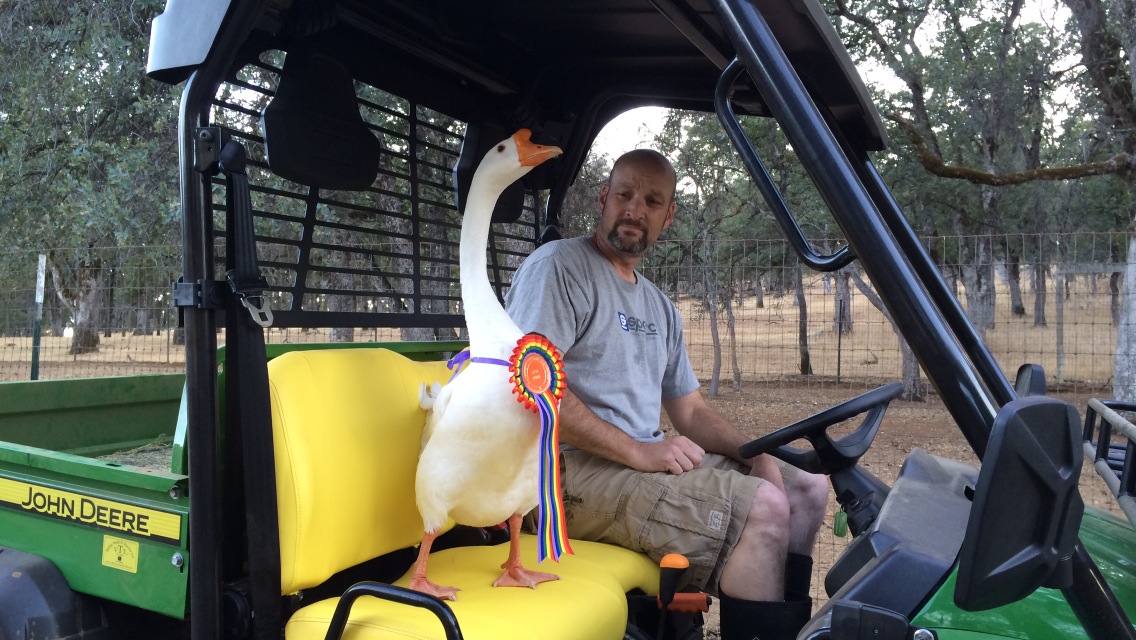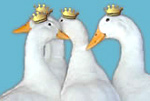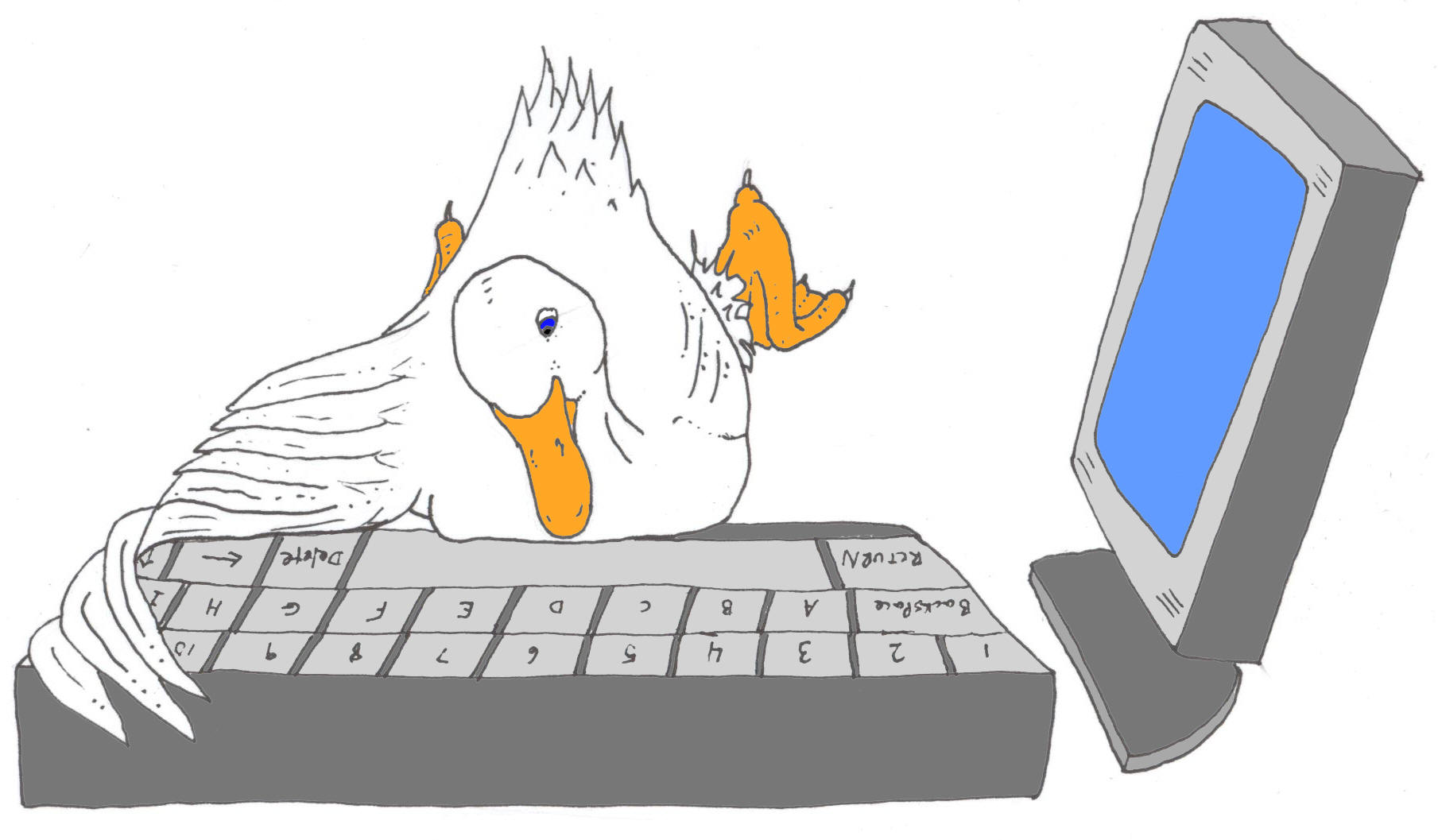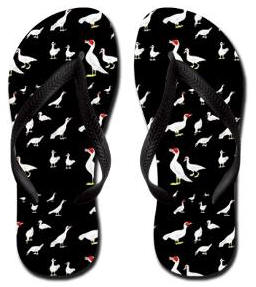Caring For Aging Ducks & Geese
We were recently asked if there are any special considerations to take into account when it comes to the care of older and aging waterfowl. As ducks pass their 7th birthdays and geese pass the 15th birthdays there are additional things to keep in mind when it comes to their health.
1. Older ducks and geese often exhibit decreased immunity as they continue to age. This means they may succumb to infections more readily than their younger counterparts. For this reason, it's important to keep a close watch over daily activities, paying attention to any changes in appetite, feather quality or behavior. Weekly inspections of the bottoms of their feet, eyes, bill, nares, vent and oil gland can aid in the early detection of issues.
2. Older birds are not necessarily as resilient against weather extremes and may react differently when temperatures reach highs in summer or lows in winter. Changes to their housing or pen situations may be required if you see them shivering in winter or panting in the heat of summer.
3. Older ducks and geese often succumb to arthritis as they age, which becomes evident as they waddle around more slowly or exhibit limping. Ideal ground conditions become even more important when you have a duck with arthritis. Be sure to fill any small holes and remove any sticks, rocks or other tripping obstacles.
For best results, and to keep your duck or goose mobile for as long as possible, it's wise to react to any limb issues immediately with a vet visit.
Ideally, Adequan injections should be introduced as soon as possible when it comes to arthritis. This wonder drug can greatly improve their condition while also helping to prevent it from worsening. We often see improved mobility within a few weeks, with maximum benefits achieved between 6 and 8 weeks. Injections can be safely administered on a weekly or bi-weekly basis, depending on the needs of your particular duck or goose. A little bottle of Adequan goes a long way, so to help decrease veterinary costs, ask your vet to teach you how to administer this yourself at home. Your vet can write a prescription for 29 guage, 1.0 ml needles (a.k.a. insulin needles), which you can pick up at your local pharmacy (Note: If you buy them in a case of 100, you can save on additional pharmacy fees).
Another less effective, but more affordable option is to ask your vet about joint supplements. Over-the-counter products like CosaminDS can be sprinkled over your duck or goose's food on a daily basis. Adult ducks and geese can usually be given 10 mg/kg once daily; that is, 10 mg of CosaminDS for every 1 kg that your bird weighs (1 kg = 2.2 lbs). Always consult with your waterfowl vet before administering medications or supplements of any kind.
4. Older ducks and geese sometimes have more difficulty preening and cleaning certain feather areas. It's not uncommon for geriatric birds with arthritis to have messy bums, especially during the winter when they may not have ample access to open swimming water. In order to prevent the risk of infection and avoid attracting parasites, weekly or bi-weekly swims in your bathtub (or other safe water sources) may be in order. Remember... never use soap on a dirty duck or goose, or you will remove their vital waterproofing oils; instead, stick to clean water (cool to lukewarm in temperature).
During these swim sessions, pay special attention to water levels. Many ducks and geese prefer a certain water depth for preening. Knowing this in advance can help you to encourage this behavior. Afterwards, a relaxing blow drying session will help bring the fluff back to their feathers. Remember to avoid high heat settings that might burn their skin and keep a safe distance from your feathered friend. Initially ducks and geese may react fearfully to your blow dryer, but this mood tends to lighten as it becomes part of their regular routine.
Our 2015 Photo Contest is coming!
Get ready! This year's photo Duck-Duck-Goose photo contest is about to begin!This fun annual fundraiser begins on April 1st and ELEVEN show-stopping prize ribbons will be awarded in three categories, which include: Most Photogenic, Most Comical & Most Mallard.
To learn how to enter your duck or goose in this year's event, Click Here!
 Our 2014
President's Award Winner "Marwyn"
poses with his Rainbow ribbon & proud Poppa!
Our 2014
President's Award Winner "Marwyn"
poses with his Rainbow ribbon & proud Poppa!
2015 Majestic Rebuild
Plans are in order for Phase III of our Majestic rebuild! This year we're planning to tear down and replace the perimeter fence that contains our final three pens: Abby's Goose Run (35' x 60') , The Gardens (25' x35') and The Gate House (10' x 12').
While our main goal for this spring is to replace this perimeter fencing to refortify our sanctuary's borders, we're also hoping to work on the internal structure, which will support the new wire roofing over both The Gardens and The Gatehouse, but this will largely depend on the availability of funds, so please remember to donate if you can--and that any amount helps!
We will be ordering our rolls of 16 gauge, 1/2" x 1/2" PVC coated wire for this project soon and want it all delivered at once to avoid excess shipping costs, so the availability of funds will determine the size of our wire order and therefore, how much work we can complete this year. We will also be posting a detailed list of Home Depot building supplies in upcoming newsletters, which people can order and have shipped to us or held at our local store for pick up. While donating a box of lumber brackets may not seem like much, it's actually invaluable!
The final phase of this entire project will involve the rebuilding of Abby's Goose Run, which we hope to complete in 2016. Once the internal supports and roofing structure is in place, our sanctuary will be set for life and ready to run full-fledge again--a moment that we are truly looking forward to...




